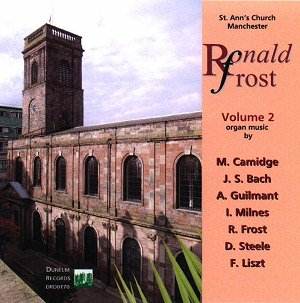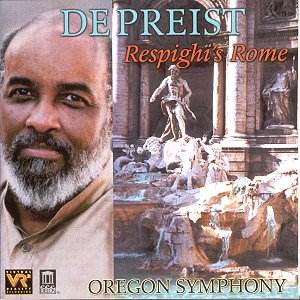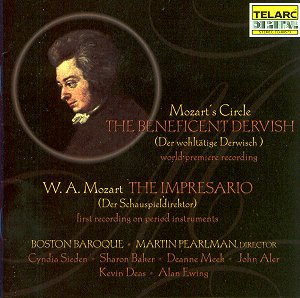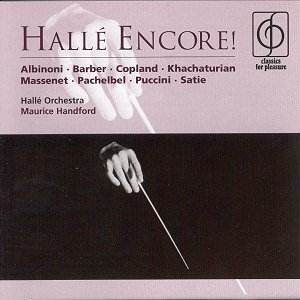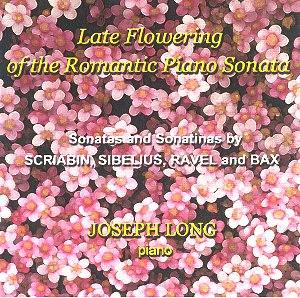 Composer: Alexander Scriabin, Jean Sibelius, Maurice Ravel, Arnold Bax
Composer: Alexander Scriabin, Jean Sibelius, Maurice Ravel, Arnold Bax
Works: Piano Sonata No. 5, Sonatinas 1-3, Sonatine, Piano Sonata No. 1
Performers: Joseph Long (Piano)
Recording: Details not supplied
Label: Not specified
The present recording by Joseph Long, featuring a selection of piano works by Scriabin, Sibelius, Ravel, and Bax, invites listeners to explore a rich tapestry of emotions and styles that have evolved through the late Romantic and early Modern eras. Each composer, while distinct in voice, reflects a deep engagement with the complexities of human experience, and Long’s interpretations provide a thoughtful lens through which to appreciate their contributions to the piano repertoire.
Starting with Scriabin’s Piano Sonata No. 5, Long presents a restrained yet vibrant interpretation that eschews the often overwhelming emotional weight associated with this sonata. The clarity of his touch allows the intricate harmonic language to unfold with a refreshing transparency, reminiscent of the French pianist and Scriabin specialist, Vlado Perlemuter. Long’s avoidance of excessive pedaling creates an airy quality, enabling the contrasting themes to resonate with their intended tension and release. This approach is particularly effective in the sonata’s expansive second movement, where the music’s inherent mysticism is allowed to breathe, rather than suffocate under a heavy pedal.
Moving to Sibelius’s Sonatinas, Long navigates the shifting moods with a deftness that highlights the Finnish composer’s unique blend of folk influences and classical form. The first and third sonatinas present serious, almost Beethovenian depths, yet it is the second sonatina where Long’s interpretative insight shines most brightly. His characterization of the ‘Haydnesque’ humor within the second movement is both playful and insightful, showcasing his ability to balance levity with the weight of Sibelius’s broader emotional landscape. This is a departure from the more somber readings of these works that one often encounters, inviting listeners to reconsider their assumptions about Sibelius’s piano writing, which, while perhaps overshadowed by his orchestral masterworks, deserves close attention for its depth and complexity.
Ravel’s Sonatine follows, where Long’s crisp articulation serves the piece well. His performance captures the delicate interplay of motifs that characterize Ravel’s style, maintaining a pristine quality that allows for the nuances of dynamics and phrasing to emerge. The buoyancy of the outer movements contrasts beautifully with the introspection of the central movement, revealing Long’s ability to shape the architecture of the work with both precision and sensitivity.
The principal work on the disc, Arnold Bax’s Piano Sonata No. 1, presents a more challenging interpretative terrain. Long’s performance here raises pertinent questions about the essence of Bax’s musical language, particularly regarding his adherence to the score’s directives. While his careful attention to detail is commendable, there are moments—especially in the impassioned second subject—where the interpretation risks losing the fervor intrinsic to Bax’s narrative. The absence of pedal markings in Bax’s scores should not imply a lack of atmospheric depth; rather, it invites the pianist to explore a more visceral connection with the music. Long’s reading, while polished and technically adept, often feels too clinical, potentially missing the visceral, orchestral qualities that characterize Bax’s style. This piece, rich with emotional turmoil derived from personal experiences, demands a more expansive sonic palette that, in this instance, Long does not fully exploit.
The recording quality is commendable, capturing the nuanced textures of Long’s playing with clarity. The engineering allows for a balance between the piano’s fortissimo passages and the delicate whispers of the more introspective moments, ensuring that the listener is drawn into the full spectrum of the performance. The sound is well-rounded, enhancing the overall listening experience without obscuring the subtleties of Long’s interpretations.
This recording stands as a significant addition to the discography of contemporary piano interpretations, particularly for those invested in the late flowering of the piano sonata. Joseph Long’s thoughtful musicianship and technical prowess suggest a promising future, even as some interpretative choices may invite further reflection and discussion. Each work on this disc, while performed with care, ultimately provides a window into the evolving landscape of piano music, inviting listeners to engage with these masterpieces in new and meaningful ways.
